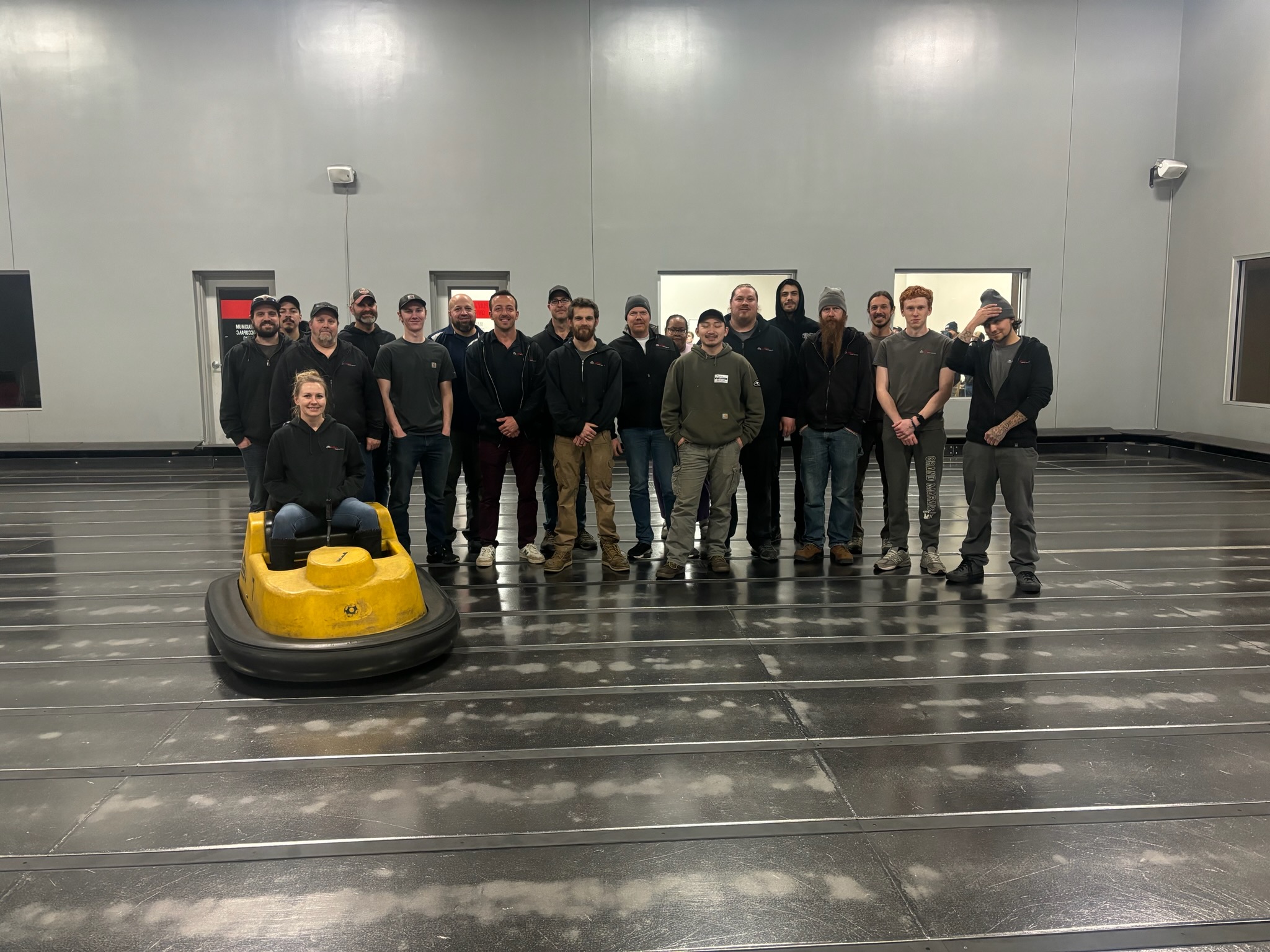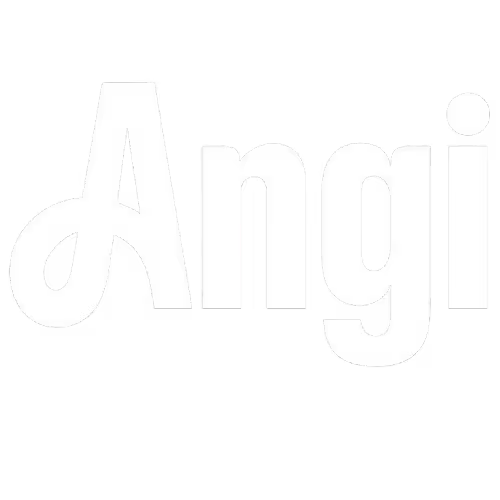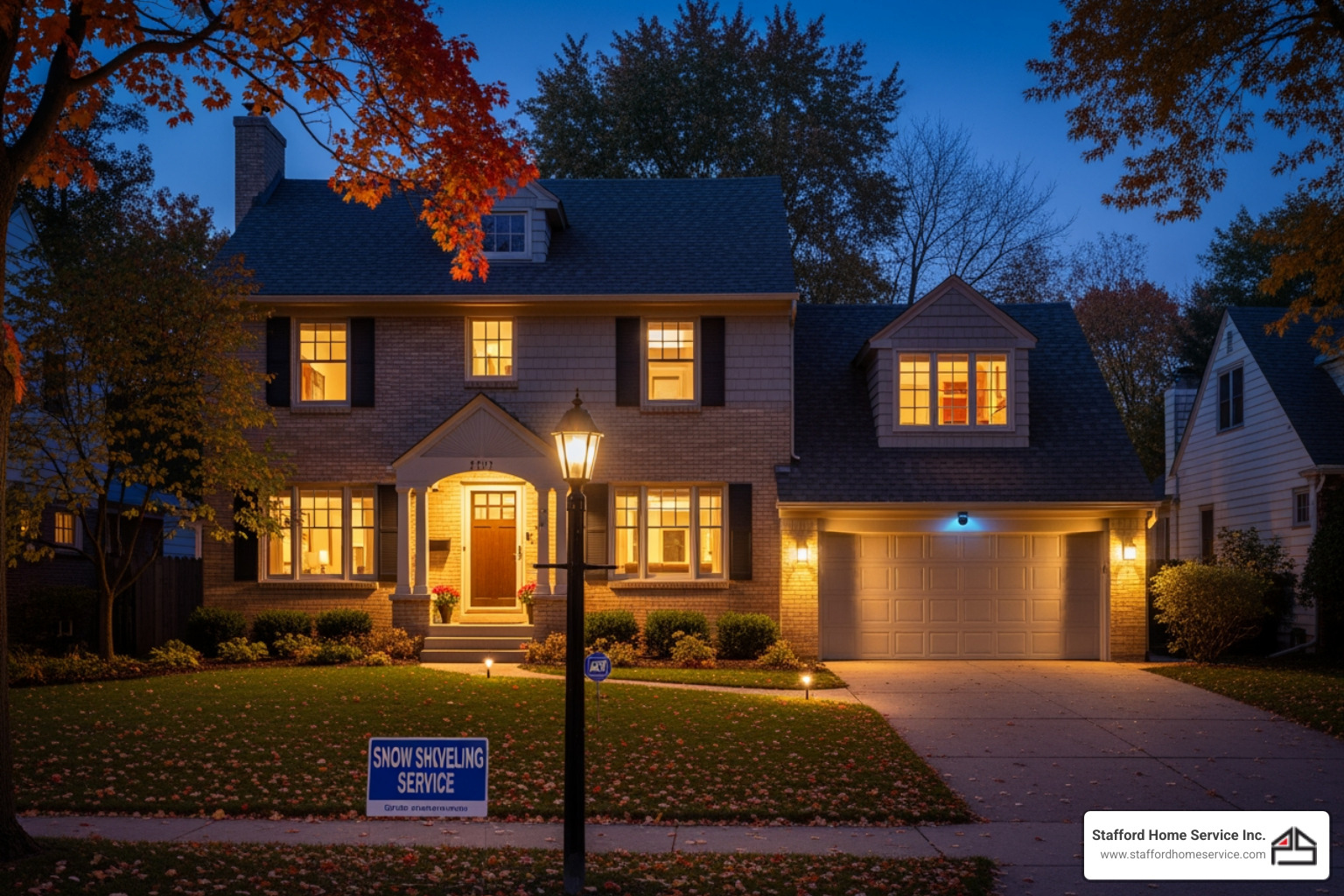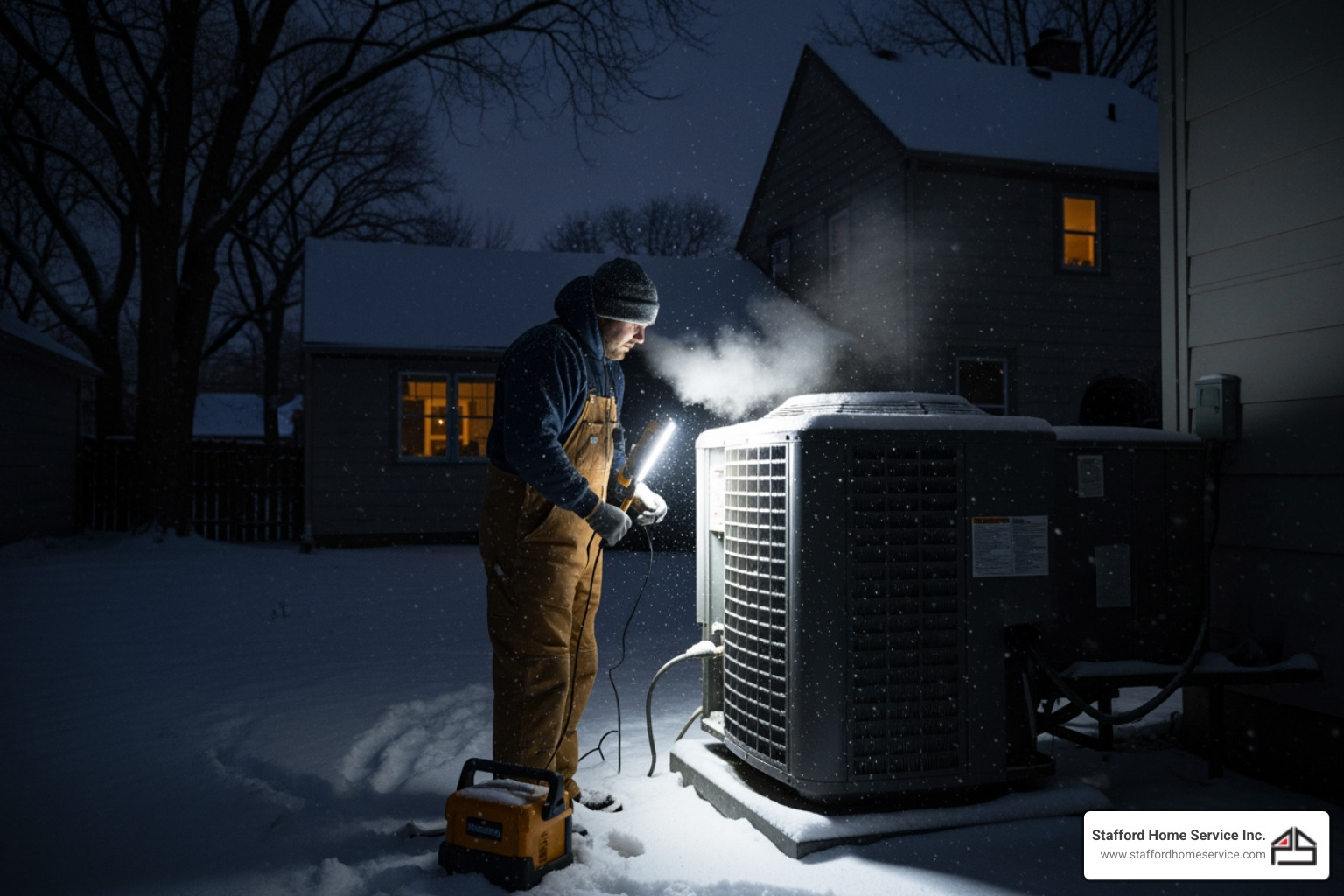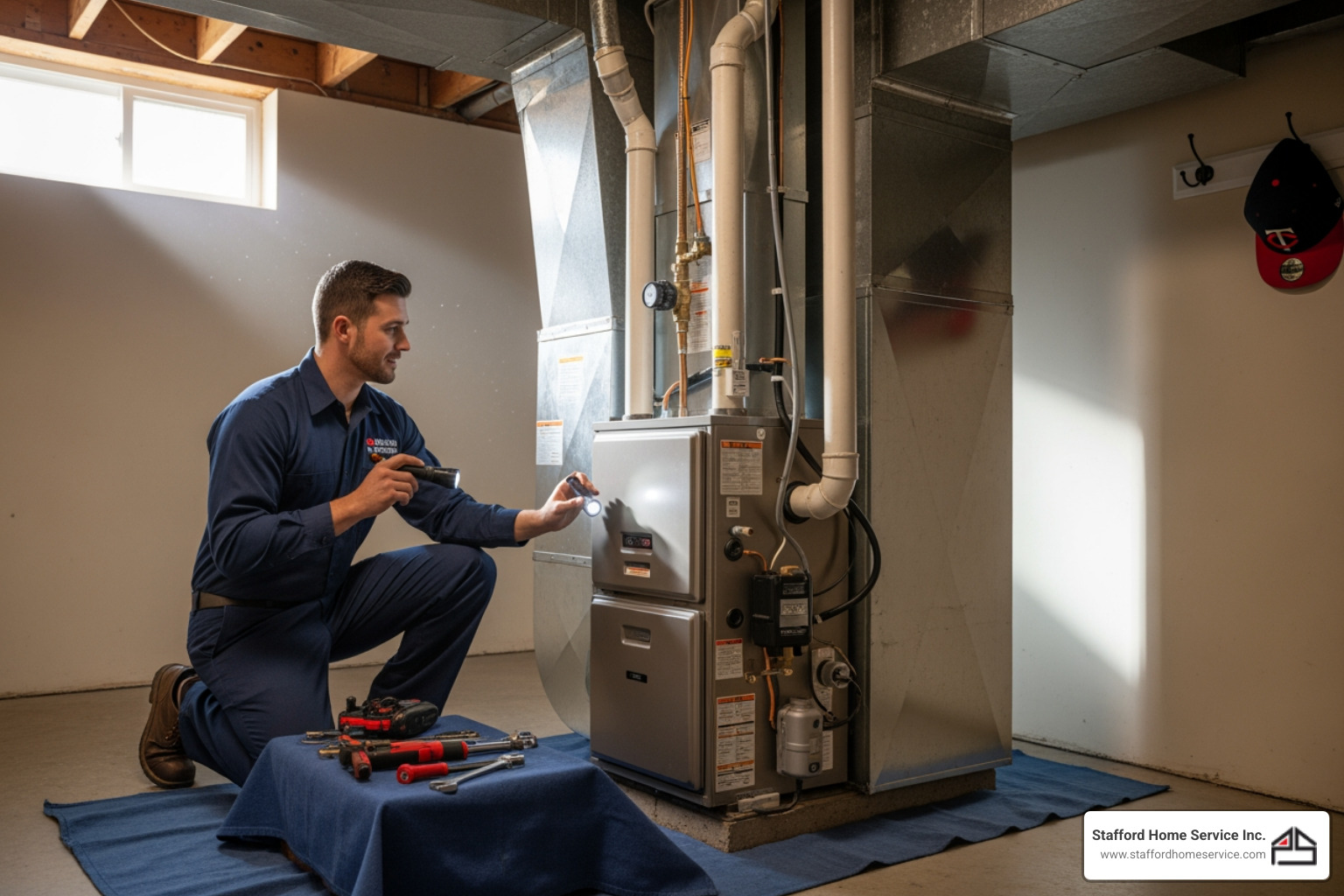Sparking Safety: What You Need to Know About Home Electrical Codes
Why Electrical Code Compliance Protects Your Home and Family
Electrical code compliance means adhering to the safety standards that govern how electrical systems are designed, installed, and maintained. These codes exist to prevent fires, electric shock, and property damage, ensuring your system operates safely and efficiently.
Quick Answer: What You Need to Know About Electrical Code Compliance
- Safety First: Prevents electrical fires (51,000 annually) and protects against shock hazards.
- Legal Requirement: Mandatory for all new electrical work and major renovations.
- Property Value: Code-compliant homes pass inspections and maintain market value.
- Insurance Protection: Non-compliance can void homeowner's insurance policies.
- Professional Installation: Licensed electricians ensure work meets current NEC standards.
Whether you're planning a renovation, adding an EV charger, or concerned about aging wiring, understanding these codes is about protecting what matters most.
The statistics are sobering: electrical issues cause an estimated 51,000 fires each year, leading to hundreds of deaths and over a billion dollars in property damage. Proper code compliance can prevent many of these tragedies.
Think of your home's electrical system as its nervous system—when it works, you don't notice it. When it fails, the consequences can be devastating. Electrical codes are your invisible safety net. Fortunately, achieving compliance is straightforward with the help of qualified professionals.
What Are Electrical Codes and Why Do They Matter?
Think of electrical codes as your home's safety rulebook—a set of guidelines for how electrical systems should be installed and maintained. These aren't just suggestions; they are carefully crafted regulations designed to keep your family and property safe from electrical hazards.
The backbone of U.S. electrical safety is the National Electrical Code (NEC), managed by the National Fire Protection Association (NFPA) since 1911. The NEC is our national benchmark for safe electrical installation, with a primary mission of fire prevention and protection against electric shock.
Faulty electrical systems cause significant property damage statistics annually. In 2021, electrical distribution systems were involved in an estimated 8,700 home fires. Beyond safety, electrical code compliance impacts legal liability, as non-compliant work can lead to fines. It also affects your home value, as outdated wiring can be a major issue during a sale.
Why Is Home Electrical Code Compliance Crucial?
Electrical code compliance is vital for several key reasons:
- Protecting your family: Proper grounding, wiring, and protection devices prevent tragic accidents from electric shock or electrocution.
- Preventing electrical fires: Every code requirement—from using the right materials to ensuring proper load distribution—acts as a barrier against a catastrophic fire.
- Ensuring safe operation: A compliant system means your lights don't flicker, outlets don't spark, and your home can handle modern electrical demands safely.
- Increasing property value: A modern, code-compliant electrical system is a major selling point, helping you pass home inspections and avoid last-minute repair demands.
- Meeting insurance requirements: If a fire is caused by non-compliant wiring, your insurance company may deny your claim, leaving you with the full financial burden.
National vs. Local Electrical Codes
Understanding electrical codes is straightforward. The The National Electric Code (NEC) is the benchmark standard for the entire country, providing the minimum safety requirements.
However, the NEC becomes law through state adoption and municipal amendments. States and cities can adopt the NEC as is or add stricter local rules to address regional considerations like climate or building practices.
Your local jurisdiction (city or county building department) has the final say on which NEC version and local rules apply to your project. Before starting any electrical work, check with your local building department for permit requirements. Whether you're in Minneapolis, Edina, Golden Valley, Minnetonka, Plymouth, or St. Louis Park, each municipality may have unique requirements beyond the basic NEC standards.
The Essentials of Electrical Code Compliance
Your home's electrical system requires every component to work in harmony. Electrical code compliance ensures that proper grounding, correct wire sizing, and modern safety devices protect your family. Codes have also evolved to include new technologies like EV chargers and smart home systems, making your home ready for the future.
Core Components of a Safe Electrical System
A safe electrical system is built on these core components:
- Proper grounding: This provides a safe path for electricity to the earth during a fault or lightning strike, preventing dangerous energy from flowing through appliances or people.
- Bonding: This connects all metal parts of your electrical system, preventing dangerous voltage differences between them.
- Wire gauge and type: Codes specify the correct wire thickness and insulation for each application. Using wire that's too thin for the load causes dangerous overheating.
- Circuit load capacity: Every circuit has a maximum electrical load. Overloading a circuit by plugging in too many high-demand appliances is a common hazard. Codes require dedicated circuits for items like HVAC systems and electric stoves.
- Breaker panel: This is the control center for your home's electricity. Codes govern its location and require clear labeling for each breaker.
- Overcurrent protection: Circuit breakers and fuses are the emergency stop buttons. They automatically shut off power when they detect too much current, preventing wires from overheating and causing fires.
- Tamper-resistant receptacles: These outlets have spring-loaded shutters that prevent children from inserting foreign objects, a key safety feature in modern codes.
GFCI & AFCI Protection: Your First Line of Defense
Ground Fault Circuit Interrupters (GFCIs) and Arc-Fault Circuit Interrupters (AFCIs) are specialized safety devices that protect against dangers regular breakers miss.
GFCIs prevent electric shock. They monitor electrical current and instantly shut off power if they detect an imbalance, such as an appliance falling into water. GFCI protection is required in wet locations like bathrooms, kitchens, garages, basements, and outdoor areas. They are identifiable by their "Test" and "Reset" buttons.
AFCIs prevent fires. They detect dangerous electrical arcs, which can occur from damaged wires or loose connections, generating intense heat. AFCIs shut off power before these arcs can ignite surrounding materials. Code requires AFCI protection in living areas like bedrooms, family rooms, and hallways, typically installed as specialized breakers in the panel.
Both GFCI and AFCI protection are major safety advancements, and their inclusion in modern codes prevents accidents that were once common.
Common Code Violations and Their Consequences
We've all been tempted by a quick DIY electrical fix, but when it comes to electrical code compliance, these shortcuts can lead to serious problems. Many issues stem from well-meaning but incorrect DIY attempts, unlicensed work, or outdated systems in older homes. The result can be failed inspections, fines, or denied insurance claims.
Top Electrical Code Violations to Avoid
Most electrical code violations are preventable if you know what to look for:
- Overloaded circuits: Drawing more power than a circuit's wiring can handle causes wires to overheat, creating a fire hazard.
- Improperly sized wiring: Using wire that is too thin for the electrical load is a fundamental error that leads to dangerous overheating.
- Missing GFCI and AFCI protection: Older homes often lack these modern safety devices, increasing the risk of shock in wet areas and fire in living spaces.
- Exposed wires or splices: All electrical connections must be contained in approved boxes. Exposed wires are an immediate shock and fire hazard.
- Incorrect panel installations: An overloaded or improperly installed panel with missing covers can compromise your entire home's electrical safety.
- Unsecured cables and non-approved materials: Loose wiring can be easily damaged, while cheap, non-approved components can fail and create safety risks.
The Risks of Non-Compliance
Ignoring electrical code compliance puts your home and family at risk:
- Fire hazards: Faulty wiring is a leading cause of electrical fires, which can spread rapidly through walls and attics.
- Electric shock risk: Missing GFCIs, exposed wires, or improper grounding can turn a simple action like plugging in an appliance into a life-threatening event.
- Legal penalties: Code violations can result in significant fines and costly, mandatory repairs.
- Difficulty selling your home: Electrical problems finded during a home inspection can lower your home's value and derail a sale.
- Voided insurance policies: If a fire is traced to non-compliant electrical work, your insurance company can deny your claim, leaving you financially responsible for all damages.
- Costly repairs: Fixing non-compliant work correctly often costs far more than hiring a professional in the first place.
Skipping code compliance is a gamble with your family's safety and financial future. At Stafford Home Service Inc., we've seen the unfortunate consequences too many times.
Your Path to a Code-Compliant Home
So, how do you ensure your home is a safe haven? The path to a code-compliant home is straightforward when you rely on professional help, respect the permit process, and view inspections as your key to peace of mind. Just as you wouldn't perform your own surgery, electrical work requires specialized knowledge to avoid serious consequences.
The Role of a Licensed Electrician
A licensed electrician is your most valuable asset for achieving electrical code compliance. They bring essential skills to your project:
- Code knowledge: Professionals undergo rigorous training to stay current with the latest NEC and local codes.
- Proper installation: They have the hands-on expertise to install systems that meet and exceed safety standards using the correct materials and techniques.
- Safety expertise: They understand the dangers of electricity and use proper safety protocols to protect your home and family.
- Permit process: They are familiar with local requirements in areas like Minneapolis, Edina, and Golden Valley, and can handle the permit application process for you.
- Inspection coordination: They coordinate with local inspectors to ensure the work passes, addressing any issues quickly.
- Troubleshooting: They can diagnose existing electrical problems, identify code violations, and provide safe, permanent solutions.
Achieving Electrical Code Compliance: A Step-by-Step Guide
Follow this roadmap to get your home to full electrical code compliance:
- Assess your needs. Understand your project, whether it's a kitchen remodel, an EV charger installation, or fixing an old panel. This helps you communicate effectively with your contractor.
- Hire a qualified, licensed contractor. This is the most critical step. Choose a licensed and insured electrician with experience in projects like yours. A reputable contractor will always prioritize safety.
- Obtain necessary permits. For most electrical work, a permit is required. Your electrician should handle this. Permits ensure a third-party inspector will verify the work's safety.
- Ensure code-compliant installation. Your contractor will use approved materials and follow all code requirements for wiring, grounding, and circuit protection.
- Schedule inspections. A municipal inspector will examine the work to confirm it adheres to all national and local codes. This is a key benefit of pulling a permit.
- Address any corrections. If the inspector finds any issues, your electrician will correct them promptly to achieve full compliance.
- Receive final approval. This documentation confirms your electrical system is safe, legal, and compliant, which is vital for insurance and future home sales.
By partnering with professionals like us at Stafford Home Service Inc., you invest in your home's safety, efficiency, and value.
Frequently Asked Questions about Home Electrical Codes
We get a lot of questions about electrical codes, as these systems can often seem mysterious. Here are answers to the questions we hear most often.
How do I know if my older home's wiring is up to code?
Older homes often have charming features, but their electrical systems may not meet modern safety standards. Look for these signs of outdated wiring:
- Knob and tube wiring: Found in homes built before the 1950s, this wiring lacks a ground wire and its insulation can become brittle and hazardous over time.
- Aluminum wiring: Common in homes from the mid-1960s to mid-1970s, it can cause connections to loosen and overheat.
- Two-prong outlets: These indicate a lack of proper grounding, which is essential for modern appliances and electronics.
- Frequent breaker trips: If you're constantly resetting breakers, your circuits are likely overloaded and not up to current code.
- Flickering lights: This can signal overloaded circuits or loose connections, both of which are potential code violations.
The most reliable method is a professional electrical inspection. A licensed electrician can assess your system and identify what's needed to achieve electrical code compliance.
Can I do my own electrical work?
While the appeal of DIY is understandable, the DIY risks with electrical work are severe. A small mistake can be dangerous or even deadly. Here's why you should always call a professional:
- Permit requirements: Most electrical work requires a permit. While homeowners can sometimes pull their own, you become legally responsible for meeting all code requirements and passing inspection.
- Inspection process: Municipal inspectors are thorough. Without professional training, it's easy to fail an inspection, leading to delays and extra costs.
- Safety concerns: Licensed electricians are trained to work safely with electricity, de-energizing circuits and identifying hidden hazards to protect your home.
- Legal implications: If unpermitted or non-compliant work causes a fire or injury, you could face serious legal liability, and your homeowner's insurance may deny your claim.
For true electrical code compliance and your family's safety, professional installation is the only smart choice.
How often are electrical codes updated?
Electrical codes are dynamic and evolve to address new challenges and technologies. The NEC update cycle occurs every three years.
This regular update, managed by the National Fire Protection Association, ensures safety standards keep pace with new technologies like EV chargers and home battery systems. However, the adoption by local authorities varies. States and cities decide when to adopt a new code version, sometimes adding their own amendments.
These evolving safety standards incorporate lessons from real-world incidents and new research. This means electrical code compliance is about staying current with the best safety practices. When we work on your home in Minneapolis, Edina, or other service areas, we ensure the work meets the specific, up-to-date codes for your location.
Ensure Your Home's Safety and Compliance
After exploring electrical code compliance, it's clear this is about more than just rules—it's about creating a safe haven for your family. Safety first is the foundation of a reliable electrical system, which works tirelessly behind the scenes to power your life.
Leveraging professional expertise means you don't have to be an electrical expert. A licensed electrician brings the training and knowledge to ensure every connection is secure and every safety device is correctly installed. This investment in electrical code compliance also protects your home's long-term value, giving future buyers confidence in your property.
At Stafford Home Service Inc., our reputation is built on quality workmanship and complete customer satisfaction. Our experienced team understands that every project is for a family that deserves to feel secure. Whether you're dealing with flickering lights, planning a renovation, or simply want peace of mind, we are here to help.
Don't wait for a problem to arise. Proactively ensuring your home's electrical safety is one of the smartest investments you can make.
Contact our Minneapolis electrical contractors for an inspection.
Customer Testimonials
Our customers consistently praise our knowledgeable technicians, prompt service, and the lasting quality of the work we deliver.
ABOUT STAFFORD HOME SERVICE
In 2007, long-time team members Kris Thompson and Dan Fournier took ownership of Stafford Home Service. With over 60 years of combined expertise in residential electrical and HVAC, they continue the legacy of former owners Curt Cervin and Paul Stafford—delivering quality workmanship and complete customer satisfaction.
70+ Years
Family-operated experience delivering trusted electrical, heating, and cooling services.
800+
Verified 5-star reviews from satisfied customers.
